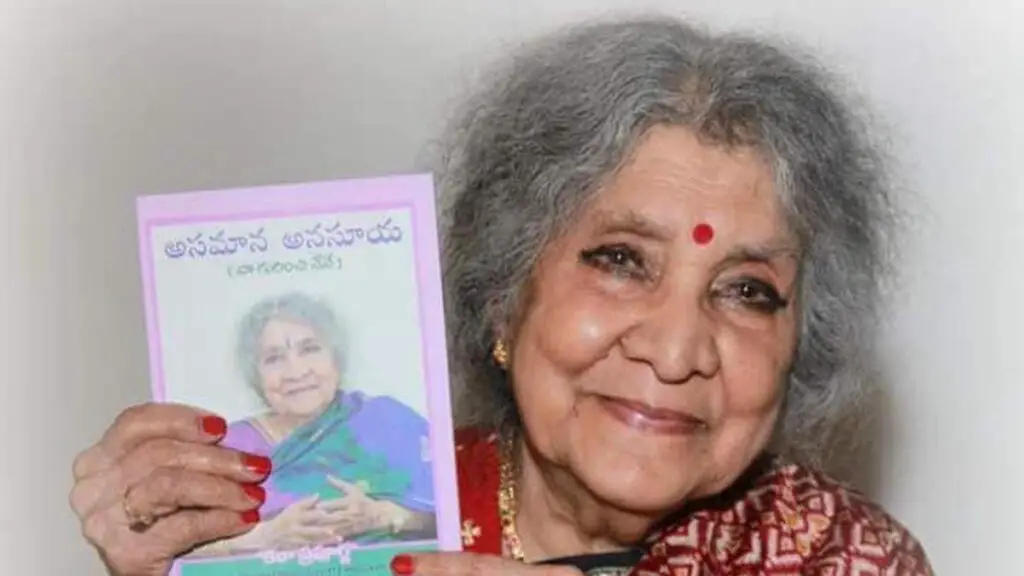Vinjamuri Anasuya Devi, a renowned musician and composer, left behind a rich legacy of folk literature, songs, compositions, and notations for numerous folk tunes when she passed away at the age of 99 in 2019. Her daughter, Seetha Ratnakar, took on the responsibility of documenting her mother’s life’s work after being inspired by Anasuya’s autobiography, Asamana Anasuya, which was released when Anasuya was 95. Seetha recorded her mother’s spoken memories, capturing anecdotes and incidents that shaped her extraordinary life journey.
To honor Anasuya’s legacy, Kuchipudi dancer Deepika Reddy curated an exclusive screening of the documentary Asamana Anasuya in Hyderabad. The documentary reflects the illustrious era of Telugu folk and light music, and Seetha embarked on the recording journey with an open mind, allowing the narratives of individuals connected to her mother to shape the narrative organically.
Two years before her passing, Anasuya expressed her grievance against Ilayaraja for using her song “Jaya Jaya Priya Bharati” in his 1986 Chiranjeevi-starrer Rakshasudu without duly crediting her for the music. An LP of the timeless piece “Mokkajonna Thotalo” from the 1969 film Adrushtavantulu, originally rendered by the Vinjamuri sisters over eight decades ago, was released in the 1970s. The documentary features personal insights and recollections from eminent maestro late Mangalampalli Balamuralikrishna, singer SP Balasubrahmanyam, and dancer Padma Subrahmanyam, shedding light on Anasuya’s profound influence on music and dance.
Anasuya’s prodigious talent was evident from a young age, as she displayed an extraordinary gift for recognizing the potential in songs sung by farmhands and workers, transcribing musical notations and recalling lyrics to preserve the essence of the tunes she had heard. Despite the dominant presence of Carnatic music, Anasuya consciously promoted folk traditions, merging her knowledge of ragas with folk tunes and infusing them with a sense of structure and melody.
Anasuya’s deep passion for playing the harmonium was evident throughout her life. She even chose to leave her job at All India Radio when the instrument was banned for recordings, and she requested for her harmonium to be positioned near her head when she passed away. This attachment to the harmonium inspired Seetha to make it the protagonist in her documentary, symbolizing her mother’s life, experiences, and musical passion.
Despite facing challenges in expanding the audience for the documentary, Seetha remains committed to preserving her mother’s legacy and honoring her impact on music and culture. The documentary serves as a retrospective tribute to Anasuya’s remarkable life and talent, aiming to ensure that her influence endures for future generations. Through personal narratives and archival footage, the documentary paints a vivid and authentic picture of Anasuya’s profound influence, shedding light on her extraordinary contributions to music and dance.


